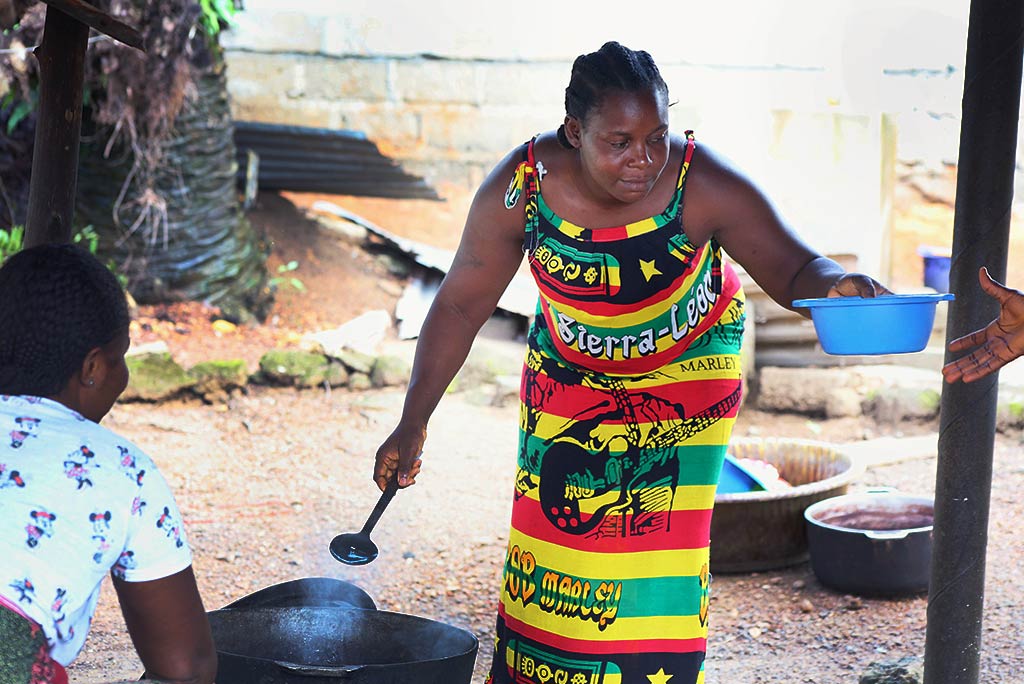Single-mother Patience fights for girls’ education
The pandemic has hit her small business hard. Despite that, Patience Harris keeps up her efforts to teach more girls about the value of education.

Patience Harris is 34 years old and a single mother of four. She grew up in a poor family and was forced into child marriage when she was only 15 years old. Patience wanted to go to school, but her mother told her she couldn’t—because she was a girl.
“I wasn’t happy to marry so soon, I wanted to be a nurse when I grew up, but I didn’t have the same opportunity as other children my age. I only attended 6th grade, that was it for me,” says Patience.
When her husband left her, Patience had no economic safety net and her lack of education made it difficult to find a job.
No money for food or school
It was when she felt she had lost all hope, that Patience met a representative from Kvinna till Kvinna’s partner organisation LIWEN.
“I had no money for my children’s school fees or to buy food. I had gone to the authorities again and again, but without result. The people from LIWEN encouraged me to join their youth group so that I could learn more about women’s and girls’ rights,” says Patience.
She now serves as the head for LIWEN’s girls’ club in Gunnigar Town Community and teaches girls about leadership and taking ownership of their own lives.
“We never used to talk about the importance of education or the danger of teen pregnancy before,” explains Patience.
Pandemic causes economic hardship
By starting a small business of selling food, Patience has also been able to send her children to school. Like so many other women across the world, however, her business has taken a blow during the covid-19 pandemic. Oxfam released a report earlier this year, stating that as many as 112 million women are at risk of losing their incomes and jobs because of unequal representation in sectors negatively affected by the covid-19 crisis.
“We eat all the money—I have to choose between my children going hungry or selling the food. Right now, we are living from hand to mouth, there’s no way to make a profit,” she says.
Kvinna till Kvinna has worked for women’s rights in Liberia since 2007 and we have an office in Monrovia. Despite being a key cornerstone for development, girls’ education isn’t always valued in Liberia, especially in rural areas. We support and work with several local partner organisations, including LIWEN, to change that. Read more about our work in Liberia.